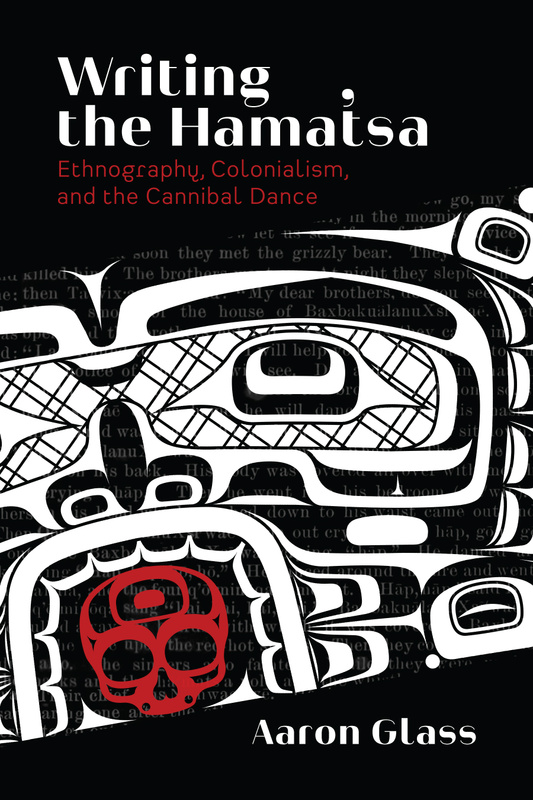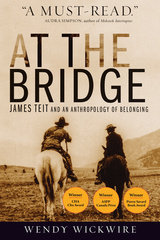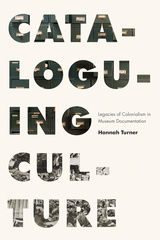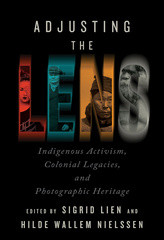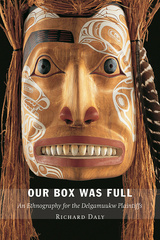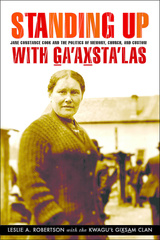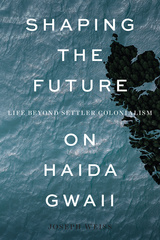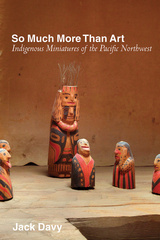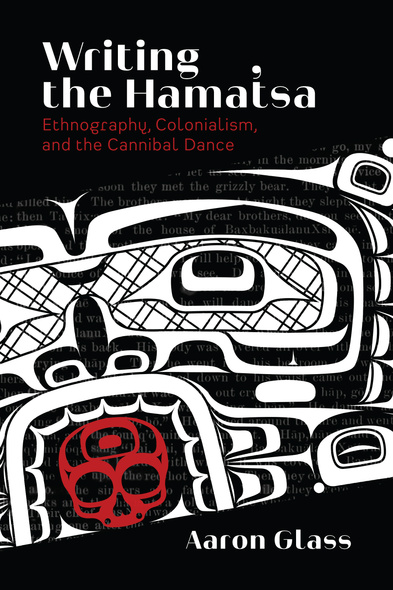
Writing the Hamat'sa
Ethnography, Colonialism, and the Cannibal Dance
Long known as the Cannibal Dance, the Hamat̓sa is among the most important hereditary prerogatives of the Kwakwa̱ka̱ꞌwakw of British Columbia. Writing the Hamat̓sa offers a critical survey of attempts to record, describe, and interpret the dance under shifting colonial policy. In the late nineteenth century, as anthropologists arrived to document the practice, colonial agents were pursuing its eradication and Kwakwa̱ka̱ꞌwakw were adapting it to ensure its survival. In the process, the dance – with dramatic choreography, magnificent bird masks, and an aura of cannibalism – entered a vast and variegated library of ethnographic texts.
Drawing on close, contextualized reading of published texts, extensive archival research, and fieldwork, Aaron Glass analyses key examples of overlapping genres over four centuries: the exploration journal, the territorial survey, the missionary polemic, settler journalism, government reports, anthropological works (especially by Franz Boas and George Hunt), poetry, fiction, and Indigenous (auto)biography.
Going beyond postcolonial critiques of representation that often ignore Indigenous agency in the ethnographic encounter, Writing the Hamat̓sa focuses on forms of textual mediation and Indigenous response that helped transform the ceremony from a set of specific performances into a generalized cultural icon. This meticulous work illuminates how Indigenous people contribute to, contest, and repurpose texts in the process of fashioning modern identities under settler colonialism.
This comprehensive critical survey of ethnographic literature on the Hamat̓sa ceremony will be an invaluable resource for scholars and students of the Northwest Coast in a range of disciplines – Indigenous studies, anthropology and history of anthropology, ethnohistory, BC studies, art history, museum studies, and material culture – as well as for Kwakwa̱ka̱ꞌwakw/Indigenous readers.
…stands as a kind of history of anthropology…
Aaron Glass has produced an important book.
A work of brilliant scholarship underpinned by decades of honourable collaborative work, Writing the Hamat̓sa takes readers from fine-grained accounts of intertextual Kwakwa̱ka̱’wakw self-fashioning to the history of Boasian anthropology itself. This book traces the Hamat̓sa dance from endangered private ritual to public icon of cultural heritage, reminding us that culture is not something that is, but something that is made – and, in this case, coproduced in ambivalent, but agentic relations of collaboration crafted under the pressures of colonialism.
Aaron Glass explores the multifaceted history of the Hamat̓sa dance from an intercultural, intertextual viewpoint, demonstrating how it has circulated in various contexts for more than a century. This extraordinary work is fundamentally an ethnography of anthropology itself.
Writing the Hamat̓sa incorporates probably every single text ever published on what is famously known as the Cannibal Dance. This is one of the best contributions to Northwest Coast anthropology, to the history of anthropology, and to Franz Boas’s rendition of ethnographic data available today.
Aaron Glass is an associate professor at the Bard Graduate Center, New York City. He is co-author, with Aldona Jonaitis, of The Totem Pole: An Intercultural History; editor of Objects of Exchange: Social and Material Transformation on the Late Nineteenth-Century Northwest Coast; and co-editor, wiht Brad Evans, of Return to the Land of the Head Hunters: Edward S. Curtis, the Kwakwa̱ka̱ꞌwakw, and the Making of Modern Cinema. His documentary films include In Search of the Hamat̓sa: A Tale of Headhunting.
Foreword / Chief William Cranmer/T̓łlakwagila (ꞌNa̱mg̱is Nation)
Prologue: Points of Arrival and Departure
Introduction: From Writing Culture to the Intercultural History of Ethnography
1 A Complex Cannibal: Colonialism, Modernity and the Hamat̓sa
2 Discursive Cannibals:The Textual Dynamics of Settler Colonialism, 1786–1893
3 The Foundations of All Future Researches: The Work of Franz Boas and George Hunt, 1886–1966
4 Reading, Rewriting, and Writing Against: Changing Anthropological Theory, 1896–1997
5 From Index to Icon: (Auto)Biography and Popular Culture, 1941–2012
6 Reading Culture, Consuming Ethnography
Afterword: Between This World and That / Andy Everson/Tanis (K̕ómoks Nation)
Appendices
Glossary
Notes; References; Index

